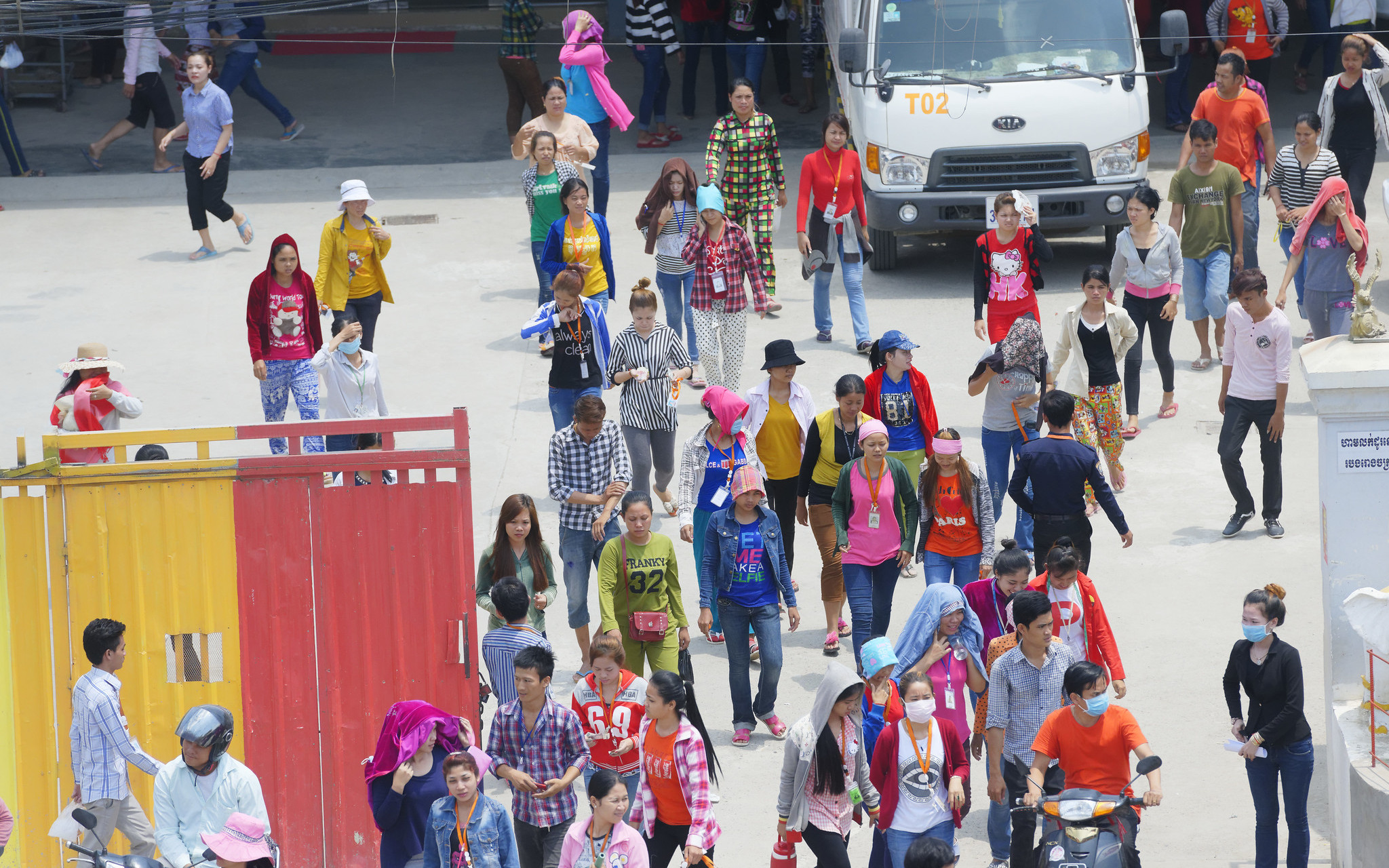A Health Ministry official has raised concerns about the lack of nurseries inside garment factories, warning that infants could lack proper nutrition if they are not breastfed for six months.
Chea Mary, head of the ministry’s national nutrition program, said that only 43 of 266 garment, footwear and travel goods factories surveyed had nurseries within or near their facilities.
Most parents then leave their children to a grandparent, she said at a seminar on April 7 about grandmothers’ role in child development.
“When families rely on income from factories, it leads to inadequate feeding and breastfeeding,” she said. “We know that breastfeeding is the most important point related to [development] during the 1,000 days after a child’s birth. If we miss this step, it will lead to more malnutrition in Cambodia.”
Mary noted that the 90 days of maternity leave granted in the Labor Law does not align with the nutrition program’s goals to sustain breastfeeding for six months. Labor Ministry spokesperson Heng Sour has not yet responded to questions.
“But what worries us the most is that for six months, they can’t do it and so it affects the baby’s health more,” Mary said, proposing in-factory nurseries as an option to continue breastfeeding while returning to work.
Officials from the Christian NGO World Vision estimated that 85% of the 600,000 employees in Cambodia’s garment industry are women. However, nurseries within the workplace might not be the preferred option for all parents in the industry.
La Nat said she and her husband both work at Taieasy International garment factory in Pursat’s Krakor district, so they leave their infant with Nat’s mother. Taieasy doesn’t have a nursery option, she said.
“It would be nice if the factory sets up a nursery, but I probably would not bring my child in because I have my mother to take care of my child instead,” she said. “In the evening, I will ride home and meet them to look after my child.”
Ath Thorn, president of the Cambodian Labor Confederation, estimated that only 10% of factories have a nursery for workers’ children, but he believed that “no one” would not want to use such a service.
“In principle, the company should be responsible for setting up nurseries, stand-by medic staff, babysitters, and enough toys [to entertain their children], so only then will they [parents] send their children.”
The World Bank has said it’s developing 22 community-based child care centers for garment workers in three provinces with the Japan Social Development Fund, under a $2.7 million grant program.













